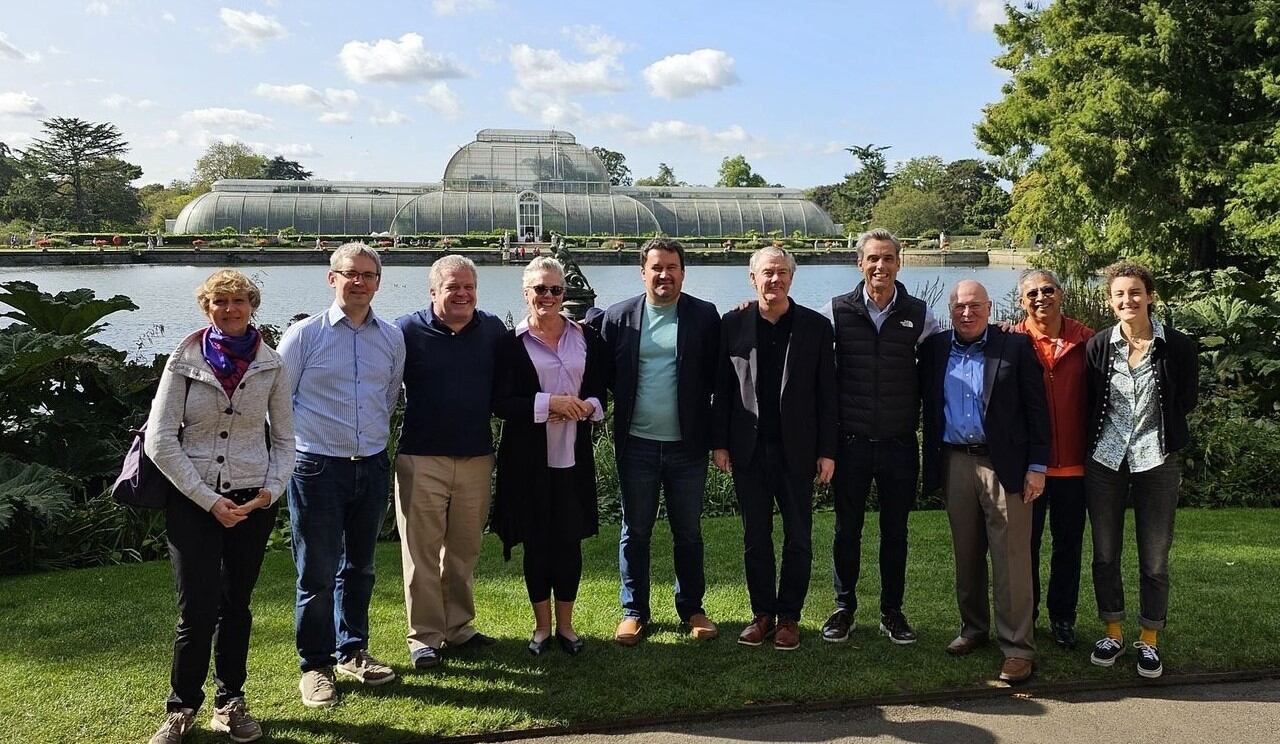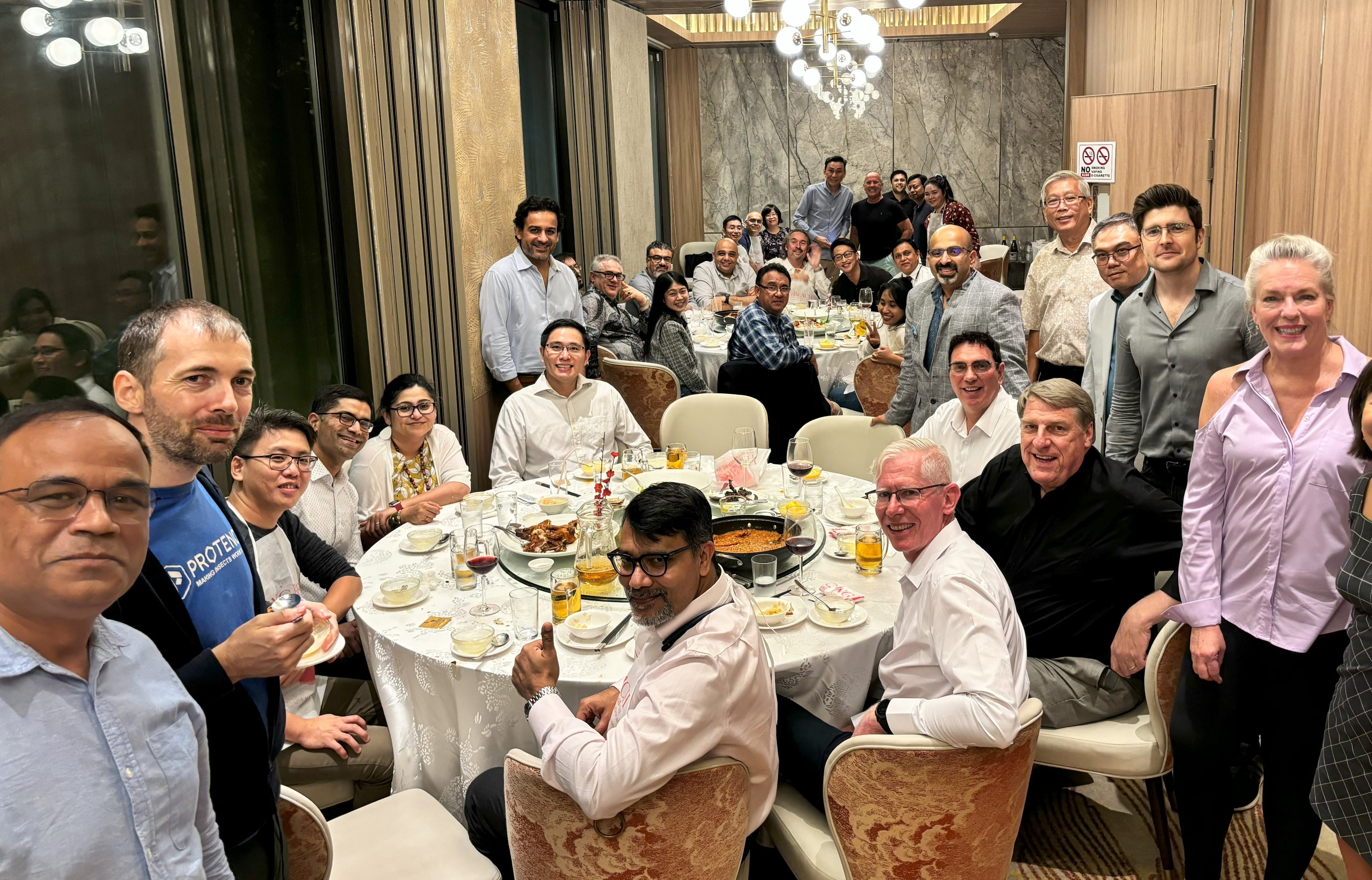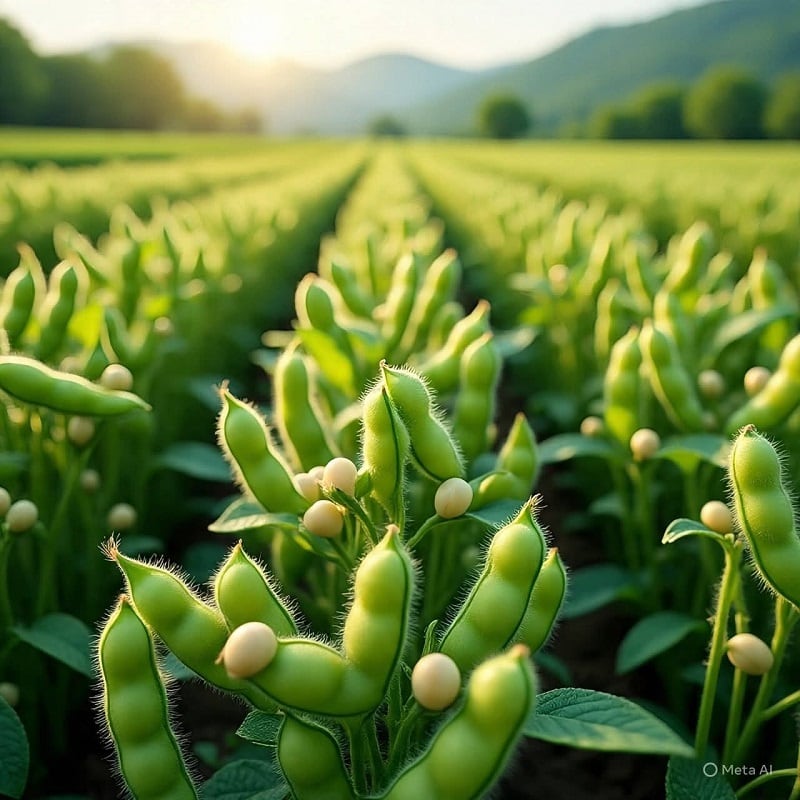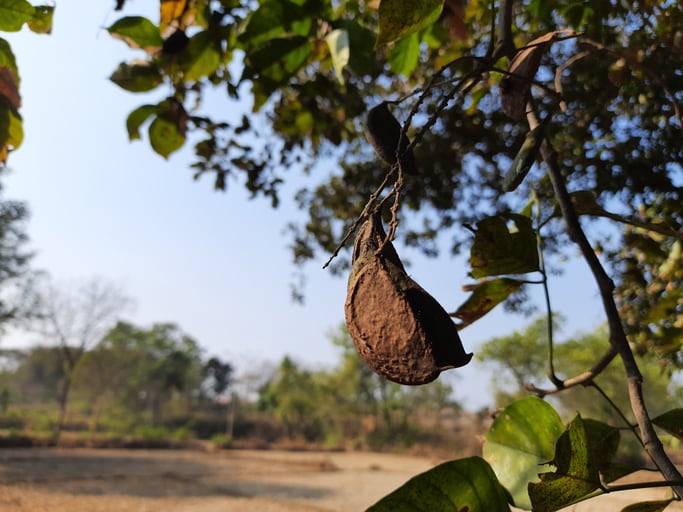The most recent The Yield Lab investment announced in 2025 was by its Latam arm in Kigüi, a Mexican company reducing food waste and optimising operations in retail and consumer goods companies using artificial intelligence and advanced data analysis.
Since founding in 2015, and with a track record of 10 funds across North America, Latin America, Europe and Asia Pacific, there are now over $163m assets under management which have driven over $1bn in follow-on and co investments.
The Yield Lab’s federation of early stage agtech funds are focused on “advancing innovation which drives inefficiencies out of the breadth and depth of agriculture,” said Claire Pribula, managing director and co-founder of The Yield Lab Asia Pacific fund. Sectors include crop science, precision ag, animal health, aquaculture, food ingredients, supply chain and “all things in between”.
With funds on every continent, it allows the ability to “intimately understand and identify innovations present in each region, and innovations which can address each region’s unique industry challenges, market dynamics and regulatory environments,” she said, “while also helping our portfolio companies in each region with the velocity to get into new regions and thus achieve their highest potential globally.”
Standout companies:
- TerraMagna (Brazil) – Agfintech providing credit risk assessment and financing for grain producers using satellite imagery, climate models, and transaction data. Manages over $400m in assets. Raised $30m in 2022 in a Series A round led by SoftBank
- Kilimo (Argentina) – Climate tech company focused on water stewardship, helping corporates meet water goals while generating new revenue for farmers. Raised $7.5m in 2024 in a Series A round led by Emerald Capital
- Umami Bioworks (Singapore) – Cell-grown seafood company valued at $68m. Cells are grown in crop serum. Focused on high value bluefin tuna, swordfish, and difficult to breed eel. Last year Umami acquired Shiok Meat which had raised $30m
- Fasal (India) – Valued at $44m. Uses sensor, IoT, and machine learning technology to provide data-driven smart farming solutions for smallholders who have saved over 83 billion litres of water, reduced fertigation and increased yield by 25%. Oversubscribed Series A at $6m
- Jala Tech (Indonesia) – Valued at $42m, Jala provides precision data-powered solutions for shrimp farming. Oversubscribed Series A at $12M now moving into Series B round, achieved cash positive Q1 2025
- Peptobiotics (Singapore) – Eliminates antibiotics with genetically selected bioactive peptides which are able to fight pathogens within the gut of the animal. Oversubscribed Series A round at $6m (valued at $19.5m)
- Solasta Bio (UK) – Develops nature-inspired bioinsecticides. Oversubscribed Series A in 2024, attracting strategic investors Corteva and FMC
- Glasport Bio (Ireland): Focused on methane reduction in livestock farming. Raised €10m in early 2025 and is developing solutions for slurry-based emissions
- CoverCress (US) – Grows a winter oilseed crop that serves as a renewable feedstock for various sustainable fuel applications. A successful exit in 2022 when Bayer acquired a majority stake in the company, along with investors Bunge and Chevron, and is now being operated as a subsidiary of Bayer
- Terviva (US) – Valued at $400m, creates a high protein oil and flour for human consumption, as well as sustainable aviation fuel from the Pongamia tree, a climate-resilient legume tree that grows on degraded or marginal land where traditional crops cannot thrive
- Aptimmune (US): Immunology platform for swine health with over 85 patents. Currently in field safety trials for an immunology solution for the ASF virus which threatens the global pork industry
- Seedz (Brazil) – A business intelligence and loyalty platform connecting agribusiness companies with farmers through rewards, services, and data insights. Operates across Latin America with over 200,000 farmers in its customer base. Recently entered the US and in 2024 raised at a valuation above $100m
New prospects
Future successes will combine three things: scalable sustainability, clear profitability pathways, and strong customer traction, said Gentiane Gorlier, managing partner at The Yield Lab Europe. “A credible go-to-market strategy is as critical as the technology,” she said, adding that start-ups must show that they can reduce environmental impact and generate ROI for farmers. “Exit potential matters, but long-term value lies in solving real problems at scale,” she pointed out. “Founders who collaborate with regulators, listen to farmers and other stakeholders, and iterate quickly will stand out.”
Start-ups must prove their tech works at scale and can integrate into real-world farm operations, she added. “We also expect founders to be mission-driven, resilient, and responsive to both market needs and evolving regulations.”

Why start-ups should focus on real problems
As investment dips into the global agtech sector, start-ups should focus on real problems, not just tech novelty, Gorlier continued. “Validate early with your end-users – farmers, processors, major food companies – and ensure your business model aligns with how they work and buy. Sustainability isn’t optional; it’s your edge. And remember, collaboration wins: build strong teams, seek partners, and stay open to feedback. TYL looks for founders who are coachable, mission-driven, and capable of growing globally.”
Today’s start-ups must think commercially from day one, added Pribula. “Focus on challenged areas which are not being served or are underserved. Agtech has so many areas of white space, focus on creating innovation which will have high financial and industry impact. Just copying a value proposition of another innovation thinking you can do it faster, better, cheaper is not enough.
“They were a bridge between worlds that rarely speak the same language. They helped us connect the agricultural ecosystem with the sustainability and corporate spheres, and it’s at that intersection where our deepest impact was born.”
Kilimo CEO and co-founder Jairo Trad
“Monetise what you have as you develop,” she advised. “Venture capital wants to see that you have the ability to become financially self-sustaining and will reward you with investment for creating revenue as you develop your innovation.”
The need for innovation is “immense”, stressed Pribula. “With so many extraneous variables such as resource constraints, climate change, less manpower for farming, fragile smallholders’ ecosystem etc, putting strain on an already stressed vast and complex agri-food ecosystem across Asia Pacific. It is even more crucial to get funding for early-stage innovation.”
The growth potential remains
Certain sub industries of agriculture are underserved by venture capital, Pribula pointed out. “In particular animal health is greatly challenged from an early-stage investment perspective,” she claimed. “Yet nothing is more urgent than proactively identifying innovations that can allow us to produce more with less, and solve the challenges, and in some cases breakage in our food system to ensure there is enough affordable food and natural resources on the planet for the future.”
Opportunities for investors
Europe’s agrifood sector is under pressure from a convergence of structural, environmental, and economic challenges, Gorlier emphasised.
Climate change has led to increasingly volatile weather patterns – droughts, floods, and heatwaves – that are reducing crop yields and threatening food security, she stressed. “Regulatory complexity across inputs, biotech, and data usage can delay innovation, while labour shortages, particularly among younger farmers, are pushing the sector to adopt more automation and digital tools.”
The Yield Lab’s vital data
• AUM = $163m
• Exits = 5
• Acquisitions = 3
• Companies invested in = 110 (only 7 write offs)
• Follow-on and co-investment = $1bn
These interconnected challenges are driving a wave of agtech innovation in areas like precision farming, biological inputs, animal tech, and sustainable food production, creating “significant opportunities for founders and investors aligned with Europe’s transition to a more resilient and regenerative food system”.
Global landscape evolving
Elsewhere around the globe, TYL – North America’s Kyle Welborn said he expects an evolving agtech landscape over the next five years via “increased focus on capital efficiency and more acquisitions by large crop input companies”. Key challenges in the region are “finding the balance between being capital efficient and getting enough traction”, he said. He predicts “lots of novel crop protection and sustainable aviation fuel deals”.
“Innovation in food and agriculture requires a full commitment of the entire ecosystem. The Yield Lab have created such a situation, by selecting category innovating portfolio companies and connecting deeply into existing corporate leaders.”
Terviva founder and CEO Naveen Sikka
TYL – Latin America’s Tomas Pena expects new talent to be attracted to start-ups in the region as more farmers and CPG’s come together to cure pain points.
Key challenges include “creating a positive environment for start-ups to get the right ask from different stakeholders in the value chain”. In terms of trends, he identified “value chain innovation with fintech as an enabler and biological product development”.
Pivotal role of venture capital for start-ups
The most successful founders, revealed Pribula, are open to collaboration and know they don’t have all the answers. Successful founders are “smart and visionaries”, she observed. But those that make it to the next level see opportunity everywhere. “Their minds are open to new ways to achieve success.” The Yield Lab, she stressed, is a “tremendous repository of not just capital but of subject matter experts and industry relationships who can help at all stages of their journey”.

“The Yield Lab Asia Pacific has played a pivotal role in our journey, not just as investors but as genuine partners,” concurred Fasal’s founder and CEO Shailendra Tiwari. “Their belief in our vision from day one and continued support through every round has meant a great deal. From making meaningful introductions to being a constant champion of our work, their presence has always been steady and sincere.”
Fuelling growth in the ag sector
The Yield Lab Latam serves as “a bridge between worlds that rarely speak the same language”, revealed Kilimo CEO and co-founder Jairo Trad. “They helped us connect the agricultural ecosystem with the sustainability and corporate spheres, and it’s at that intersection where our deepest impact was born,” he said. “With their support, we turned technology into real solutions for farmers, into measurable water outcomes for companies, and into an impact model that scales with purpose. Their role has always been more than capital – it’s about unlocking doors, building bridges, and amplifying missions.”
Terviva founder and CEO Naveen Sikka added: “Innovation in food and agriculture requires a full commitment of the entire ecosystem. The Yield Lab have created such a situation, by selecting category innovating portfolio companies and connecting deeply into existing corporate leaders. The results – innovation at scale, driving farmer and environmental benefits.”





